Blood. Sweat. Tears. And six Kovsie artists at the cutting edge.
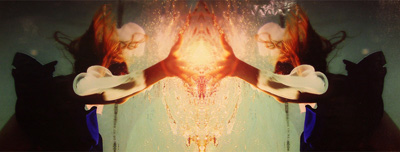
Artwork: Hinder, Photograph by Chantal de Jager |
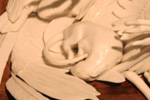
Artwork: Immolations for our Carrion King by Antoinette Pretorius |
Blood, sweat and tears – the theme of this year’s Absa L’Atelier Art Competition. Boldly taking up the challenge, six Kovsie artists gritted their way to a place in the national round.
Eight finalists were recently announced at the regional exhibition hosted by the Johannes Stegmann Art Gallery on the Bloemfontein Campus. These artists will now proceed to exhibit their cutting-edge work at the Absa Gallery in Johannesburg in July. There they will compete nationally for the most prestigious art award in South Africa.
Winners The names of our Kovsie regional winners are:
- Monet Bosma, fourth-year Fine Arts student;
- Chantal de Jager, Kovsie alumnus, master’s degree in Architecture;
- Johandi du Plessis, fourth-year Fine Arts student;
- Louis Kruger, Kovsie alumnus, master’s degree in Fine Arts;
- Adelheid von Maltitz, junior lecturer at UFS Department of Fine Arts and
- Antoinette Pretorius, previous Kovsie student.
The two remaining spots were taken up by Helena de Waal (Underlying unity, Ceramics and mixed media) and Eljana van der Merwe (Diary of a white elephant, Oil on canvas).
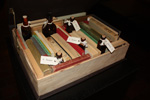 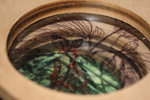
Artwork: Sorting teas by Monet Bosma |
Prizes
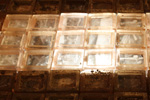
Artwork: Compulsive mourning by Adelheid von Maltitz |
The highly-desired overall first prize comprises a six-months sabbatical at the Cité Internationale des Arts in Paris, France, including R150 000 during the stay.
The second prize is given to the most promising artist, which includes a three-month sabbatical at the Cité, French language classes and nationwide touring exhibitions.
Two additional merit prizes are awarded. The first carries a two-month residency on Sylt, the northernmost of Germany's islands, and the other a month-long Ampersand fellowship in New York.
The Absa L’Atelier Art Competition is presented annually by Absa in conjunction with South African National Association for the Visual Arts (SANAVA).